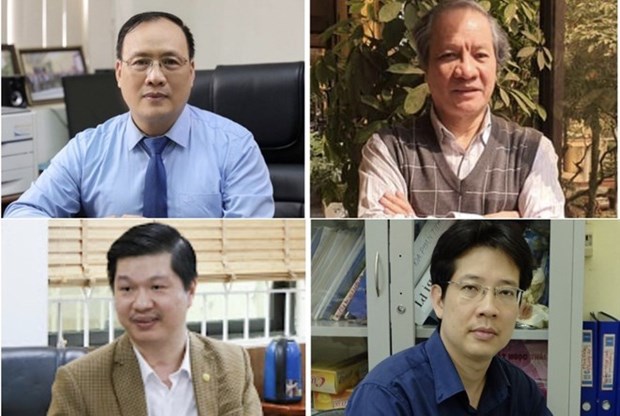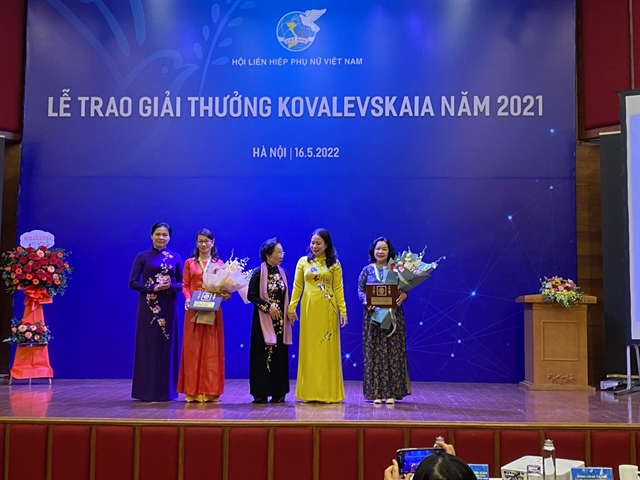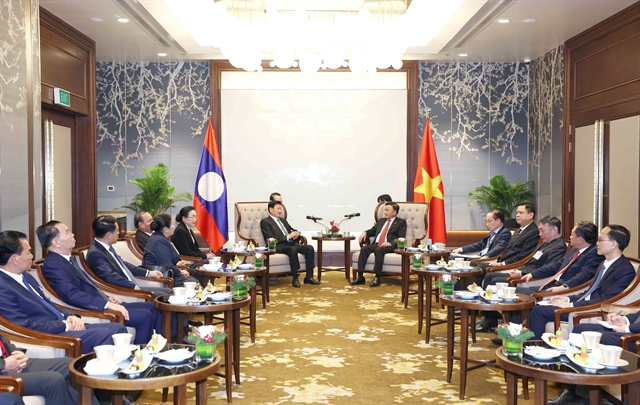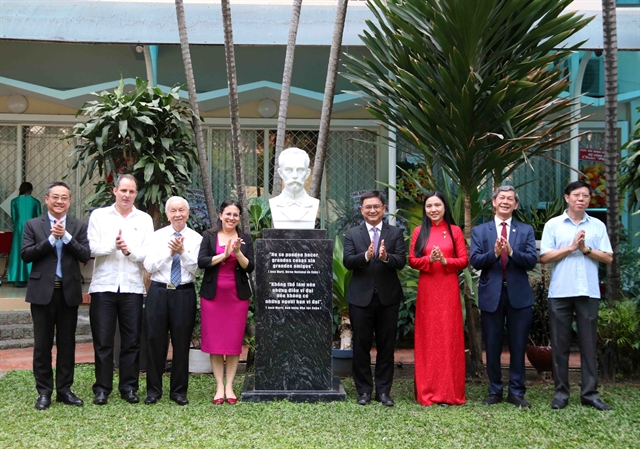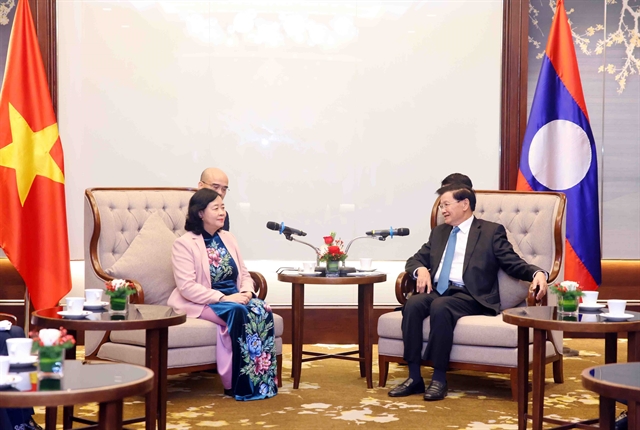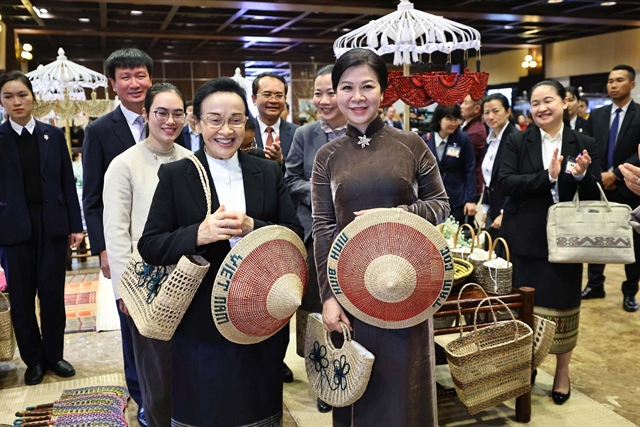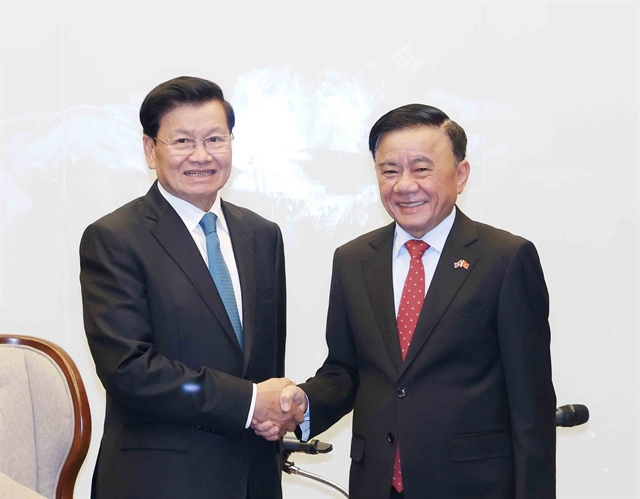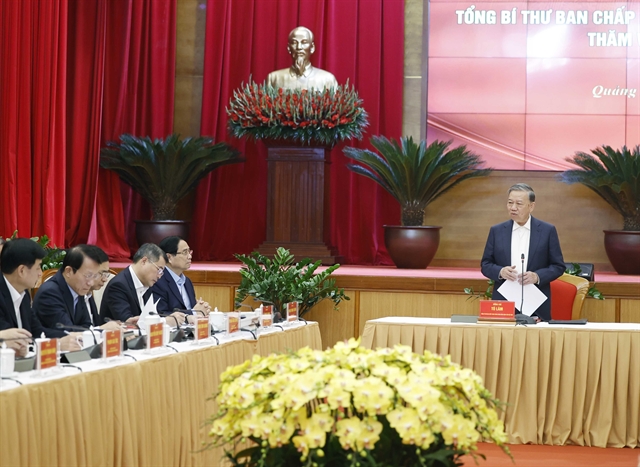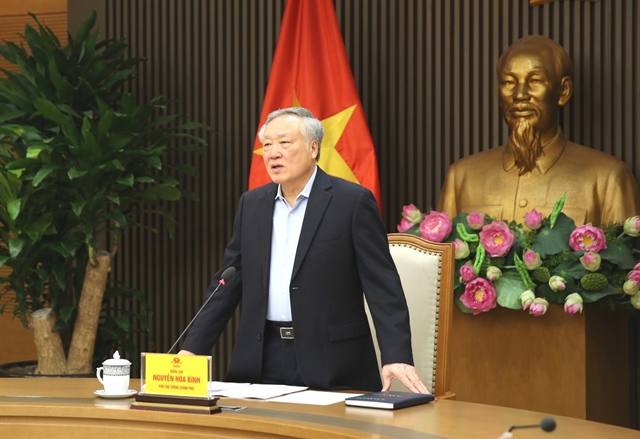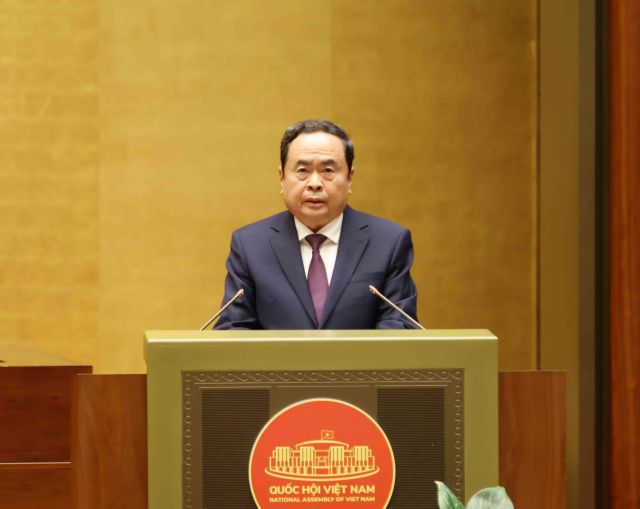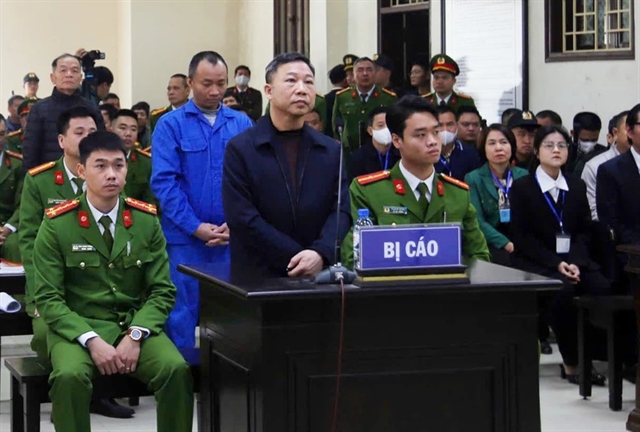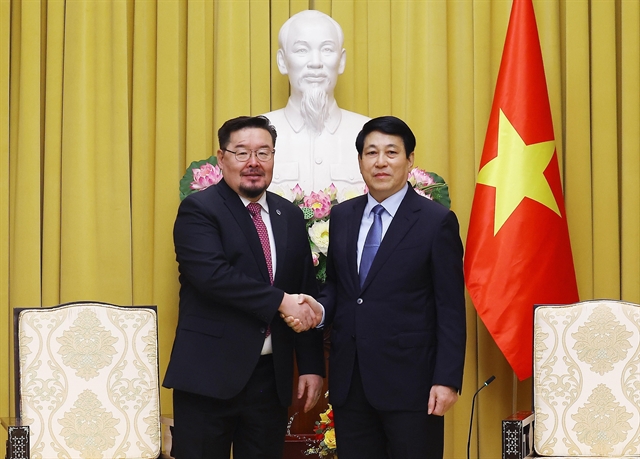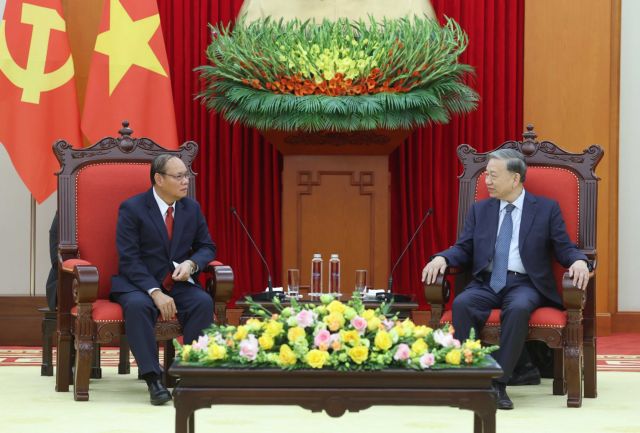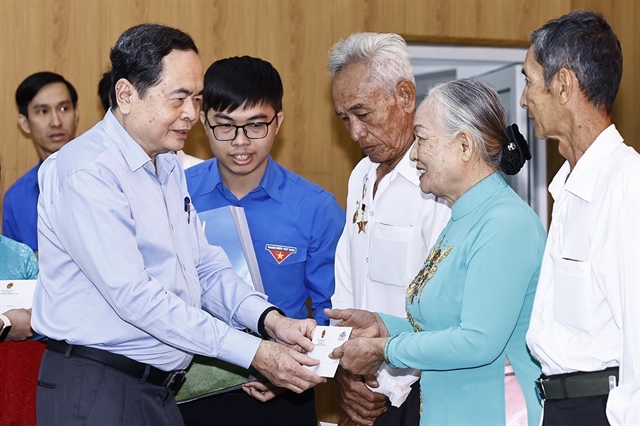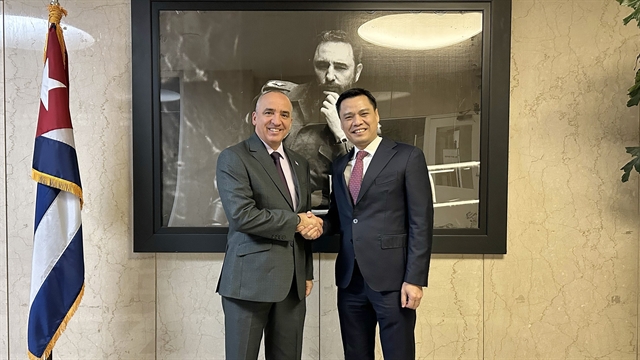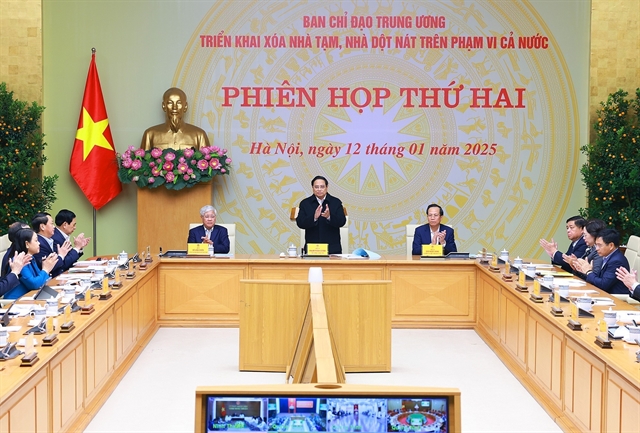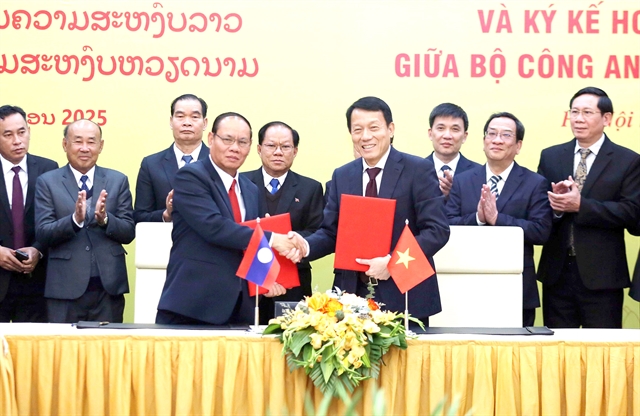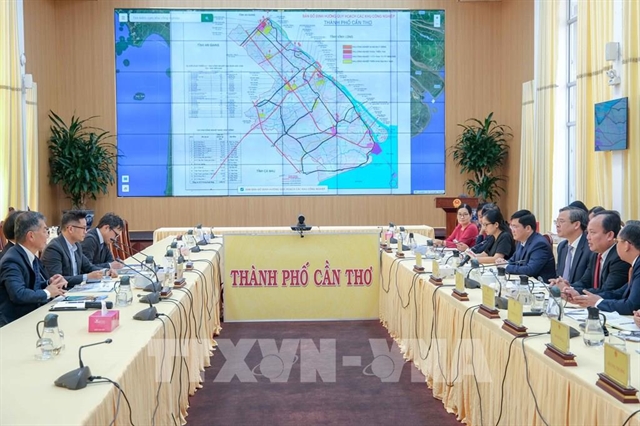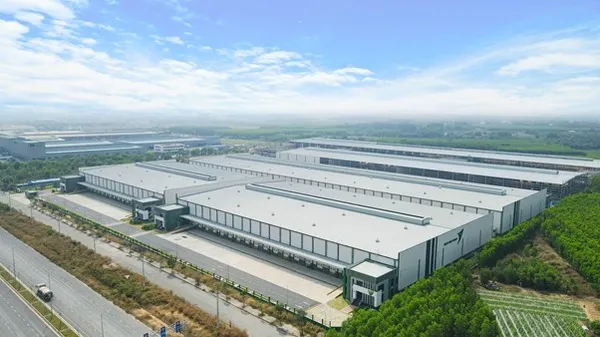
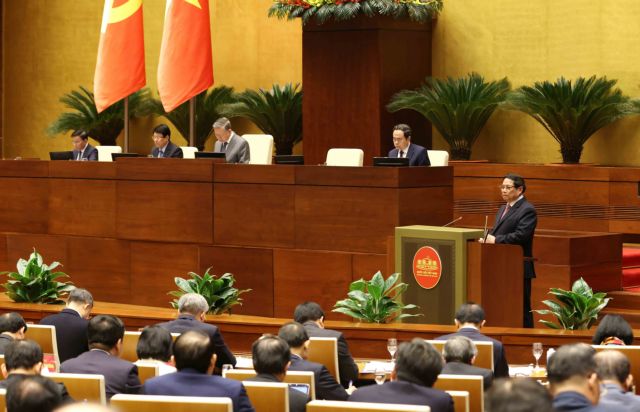 |
| Prime Minister Phạm Minh Chính presents the Government's action plan to implement the Politburo's Resolution 57 on developing breakthroughs in science, technology, innovation and the national digital transformation at a conference on January 13 in Hà Nội. — VNA/VNS Photo Phương Hoa |
HÀ NỘI — The Government will create special policies and mechanisms on naturalisation, land and housing ownership, income, visas and work permits in a bid to attract Vietnamese scientists and experts living abroad, as well as foreign professionals, to work in Việt Nam.
These professionals will serve as 'chief architects' in organising, managing and implementing national key projects, programmes and tasks, Prime Minister Phạm Minh Chính said at a national conference held on January 13 in Hà Nội.
Attracting leading scientists is one of the Government's plans to implement the Politburo's Resolution 57 on developing breakthroughs in science, technology, innovation and the national digital transformation, Chính said at the conference on the 'strategic' and 'pivotal' resolution.
"Resolution 57 carries exceptional importance, serving as a guiding compass for development in a new era of prosperity, civilisation and global prominence. It is also a powerful call to action for Việt Nam to become a developed, high-income nation with global competitiveness," the PM noted.
According to the Government leader, science, technology, innovation and digital transformation play a crucial role as a driving force to accelerate Việt Nam's breakthroughs and sustainable development.
This driving force will enable Việt Nam to catch up with and advance alongside developed nations, avoiding economic stagnation while progressively rising to stand among global technology powers. It is also a key factor in enhancing labour productivity and economic competitiveness, creating new products and services to meet both domestic and international market demands.
Since 1990, only 34 economies have escaped the middle-income trap to become high-income nations, while 108 countries have yet to do so, according to the World Bank's latest 2024 report. Việt Nam currently had a per capita GDP of US$4,700 in 2024, and if the economy grows at an average rate of 7 per cent per year, the country is projected to reach high-income status (approximately $13,800 per capita) by 2040.
"The aspiration for a prosperous, modern and developed Việt Nam to join the group of high-income countries is burning stronger than ever," emphasised PM Chính.
He asserted that realising this vision would require an unwavering commitment to science and technology, innovation and digital transformation.
The PM noted that this was not only an inevitable trend of the times, but also the sole path to breakthrough growth, overcoming challenges, seizing opportunities and building a strong, independent and self-reliant economy, as well as a modern and civilised society -- and positioning the nation alongside global powers.
As for the key tasks and solutions in the Government’s action programme, PM Chính stated that 41 target groups and seven task groups with 140 specific tasks had been outlined.
First and foremost, he underscored the need to raise awareness, foster a breakthrough in mindset innovation, establish strong political resolve and lead decisively to create new momentum and general enthusiasm for the development of science and technology, innovation and digital transformation.
The Government also called for the urgent and decisive completion of institutional frameworks, eliminating all outdated mindsets, concepts and barriers hindering development. The goal is to transform institutional frameworks into a competitive advantage to foster science and technology, innovation and digital transformation.
Along with developing experimental and special mechanisms for science, technology, innovation and digital transformation to submit to the National Assembly for approval, the Government highlighted the need for special mechanisms regarding investment, public investment and streamlined procurement procedures for digital products and services. It also proposed piloting new technologies under state-supervised sandbox models.
In particular, the Government aims to issue regulations for venture capital funds and support mechanisms for innovative start-ups to foster innovation. PM Chính called this a strategic step to build national competitiveness amid rapid globalisation and digital transformation.
He noted that despite its potential, venture capital attraction had not yet met expectations, with only $2.5 billion raised from 2021 to 2024, necessitating stronger promotion in the future.
Another key task highlighted by the head of the Government is strengthening infrastructure investment for science, technology, innovation and digital transformation while developing and prioritising a skilled workforce and talent to meet the demands of these fields.
"In addition to strengthening infrastructure investment and completing institutional frameworks, mechanisms and policies, the development and prioritisation of high-quality human resources are crucial -- the ultimate key to unlocking success," said Chính, stressing that the goal is to build a robust workforce, sufficient in quantity and exceptional in quality, to meet the increasingly stringent demands of the digital era.
The PM also mentioned the Government's plan to accelerate the digital transformation, apply science and technology and foster innovation within state agencies.
Efforts would also be made to promote science, technology, innovation and digital transformation activities in the private sector.
Underscoring the importance of strengthening international cooperation in this field, PM Chính said collaboration would enable Việt Nam to deeply integrate with the global community and swiftly adopt and apply advanced technological advancements.
The Government aimed to develop comprehensive international cooperation strategies to elevate Việt Nam's position in international organisations and forums. — VNS

